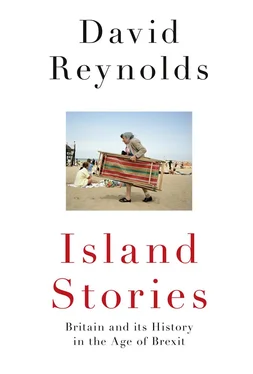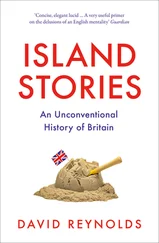Only when he lost control of the seas after the Battle of Trafalgar in 1805 did Napoleon turn east against Prussia and then Russia. But he posed a new challenge in the form of economic warfare. His ‘Continental Blockade’ of Britain from 1806 and British retaliation against any state that cooperated with him proved the climax of this battle to control the narrow seas. It also had wider implications. The refusal of Portugal to join the blockade allowed the British to open a vital second front from 1808 in the Peninsular War, fighting Napoleon in Spain. And the Tsar’s refusal to maintain the blockade was a major factor in Napoleon’s hubristic invasion of Russia in 1812, which marked the beginning of his end. In 1814 and again in 1815 Britain was able to subsidise a coalition of three major powers (Prussia, Russia and Austria) as well as its own now-substantial army and thereby twice defeat the Little Emperor – culminating in the British-Prussian victory at Waterloo in June 1815.
The French wars from 1793 to 1815 led to a sharper definition of national borders. For the British, the sea between the two countries became generally known as ‘The English Channel’ – reflecting their claim that ‘the maritime frontier was defined by the French coast’. For the French, the waterway was known as ‘La Manche’ – the sleeve – indicating a looser conception of territorial waters. ‘The sea became an external limit of the French territory, without belonging to it,’ but the English claimed the sea as well. [27] Конец ознакомительного фрагмента. Текст предоставлен ООО «ЛитРес». Прочитайте эту книгу целиком, купив полную легальную версию на ЛитРес. Безопасно оплатить книгу можно банковской картой Visa, MasterCard, Maestro, со счета мобильного телефона, с платежного терминала, в салоне МТС или Связной, через PayPal, WebMoney, Яндекс.Деньги, QIWI Кошелек, бонусными картами или другим удобным Вам способом.
Affirming Britain’s security interest in the other side of the Channel coast, in 1839 the Foreign Secretary, Lord Palmerston, orchestrated an international agreement to guarantee the independence and neutrality of Belgium, which had broken away from the United Kingdom of the Netherlands. France and Prussia were among the signatories. This had fateful consequences seventy-five years later.
After Waterloo there was periodic friction with France and occasional invasion scares, but, to quote historian François Crouzet, the French ‘never again picked up the gauntlet’. They ‘understood that they would not have a chance, and so backed down when the risk of war was serious, for example in 1840 and again in 1898’. [28] Конец ознакомительного фрагмента. Текст предоставлен ООО «ЛитРес». Прочитайте эту книгу целиком, купив полную легальную версию на ЛитРес. Безопасно оплатить книгу можно банковской картой Visa, MasterCard, Maestro, со счета мобильного телефона, с платежного терминала, в салоне МТС или Связной, через PayPal, WebMoney, Яндекс.Деньги, QIWI Кошелек, бонусными картами или другим удобным Вам способом.
Gradually relations between Britain and France moved haltingly towards co-existence, then entente and eventually alliance – redefining Britain’s continental connection until 1940.
The Channel – transcended yet triumphant
During the century between 1815 and 1914, Britain tried to maintain its hybrid grand strategy – maritime and continental – by new means. Global expansion, often conducted by limited wars such as the conquest of Egypt in 1882, was combined with periodic bouts of calculating diplomacy to maintain a European balance. Throughout, large-scale wars such as the Crimea (1854–6) and South Africa (1899–1902) were the exception. But in the last decades of the nineteenth century – after the geopolitical turning points of American and German unification between 1861 and 1871 – the implications of Britain’s relative decline began to kick in. During the long eighteenth century the British had battled against a single foe, France, for European stability and global hegemony. The struggle was immense, but the chess game was essentially simple. By 1900, however, the country faced simultaneous challenges on the continent and globally from a variety of powers, even though Germany was the most threatening because closest to home. The first German war (1914–18) was won by Britain and France, but only with massive American help; in the second France quickly became irrelevant geopolitically and America all-important. In the process the Channel lost much of its strategic significance – transcended by the bomber and then the nuclear missile. Yet its psychological importance for British identity was triumphantly re-asserted by the events of 1940. The era of the two world wars requires closer attention because it has become central to national debate.
In the late-nineteenth century, Britain’s default response in the face of multiple challengers was a policy of selective ‘appeasement’ – in those days a perfectly respectable diplomatic term. It meant, according to historian Paul Kennedy, ‘satisfying grievances through rational negotiation and compromise, thereby avoiding the resort to an armed conflict which would be expensive, bloody, and possibly very dangerous’. [29] Конец ознакомительного фрагмента. Текст предоставлен ООО «ЛитРес». Прочитайте эту книгу целиком, купив полную легальную версию на ЛитРес. Безопасно оплатить книгу можно банковской картой Visa, MasterCard, Maestro, со счета мобильного телефона, с платежного терминала, в салоне МТС или Связной, через PayPal, WebMoney, Яндекс.Деньги, QIWI Кошелек, бонусными картами или другим удобным Вам способом.
But the rationality and acceptability of appeasement was more obvious to the British than to others. ‘We are not a young people with an innocent record and a scanty inheritance,’ Churchill privately admitted in 1914. ‘We have got all we want in territory and our claim to be left in the unmolested enjoyment of vast and splendid possessions, mainly acquired by violence, largely maintained by force , often seems less reasonable to others than to us.’ [30] Конец ознакомительного фрагмента. Текст предоставлен ООО «ЛитРес». Прочитайте эту книгу целиком, купив полную легальную версию на ЛитРес. Безопасно оплатить книгу можно банковской картой Visa, MasterCard, Maestro, со счета мобильного телефона, с платежного терминала, в салоне МТС или Связной, через PayPal, WebMoney, Яндекс.Деньги, QIWI Кошелек, бонусными картами или другим удобным Вам способом.
He chose to omit the italicised phrases when quoting this memorandum in his war memoirs – a sign, presumably, of his awareness that they did not accord with what the British liked to present as their principled love of peace.
Читать дальше












